EP.28 [Current Affairs] "What if you have new coronary pneumonia?"
Since the outbreak of the new crown pneumonia in mid-May, nearly 12,000 people have been released from quarantine for confirmed cases. In addition to the sequelae after recovery, these people are more likely to have a strange vision from the outside world. Therefore, this episode wants to talk to you about it. The psychological level of patients with new coronary pneumonia, about "If you have new coronary pneumonia, how should the patient and family members deal with it, and how can others help?"
In fact, this psychological issue can also be applied to other major diseases, such as cancer, kidney dialysis, etc.
I want to talk about this topic, mainly because I met a patient in his 70s a while ago, accompanied by his 40-year-old son. During the process of entering the clinic, Abo kept his head down and didn't say a word, and when his father sat down, his son scolded: "My father has diabetes and high blood pressure that he can't control. liquor!"
The son's remarks immediately ignited the patient's anger, and the two of you argued each and every word. In fact, such a scene happens anytime, anywhere in the medical field. The patient himself has suffered from a serious illness. Facing the accusations of his dearest family members, he often resents Think: "I'm sick and trying to get better, why are you scolding me?"
When I saw the father and son, I thought of the "Lion King" who was initially diagnosed. When the epidemic broke out, public opinion kept accusing the president of the Lions club of being a breach of epidemic prevention, but in fact, the disease itself has no color, but people often look at it with colored eyes. disease. The Lion King is a patient, and patients with new coronary pneumonia are also patients. There is no excuse here for those who ignore the epidemic prevention. I believe that the infected people do not want these things to happen before the diagnosis. After the diagnosis, they are also worried about whether they will infect others. Death, and even worry about sequelae after recovery, as well as severe criticism from the outside world.
As far as medical staff are concerned, they are in a high-risk working environment every day. In addition to worrying about infecting their family members, they are more likely to be labeled by their neighbors. Therefore, the long road from infection to recovery of new coronary pneumonia patients can be seen in the psychological suffering. One spot.
According to Elisabeth Kubler-Ross, an American psychiatrist, the psychological process of a patient facing death, or the process of changing mood when diagnosed with a serious disease (such as cancer), is divided into five stages : Denial, resentment, depression, compromise, acceptance.
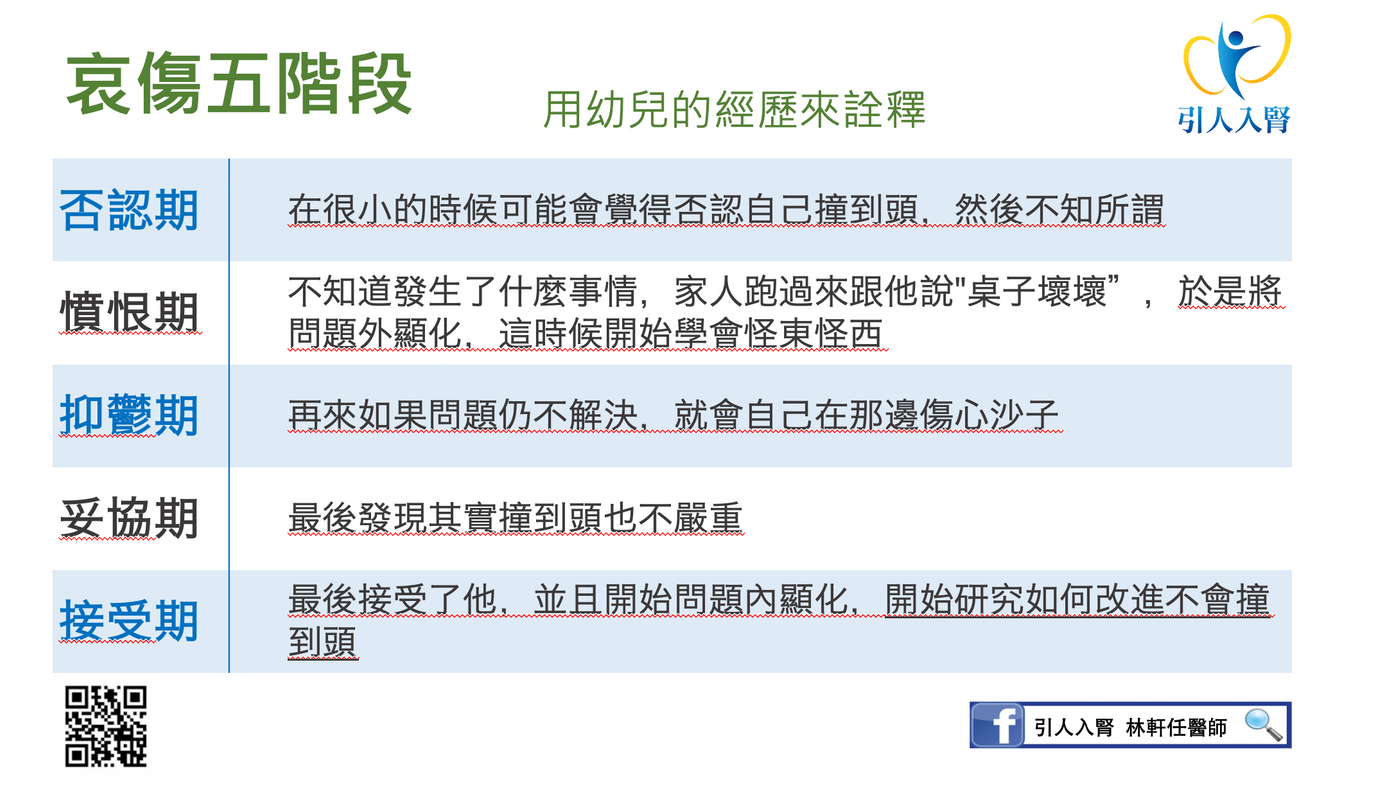
Taking the example given by Joe in "Learning from Adults": a child hits his head when he walks and feels pain. When he is young, he may not know what happened. He denies that he hit his head (denial), and then his family runs and says: "The table is broken", Externalize the problem and start blaming things (resentment), if the problem is still not resolved, the child will hide in the corner and draw circles (depression), and finally find that hitting the head is not serious, and accept it ( Compromise) and start to internalize the problem to work out how to stop bumping your head next time (accept).
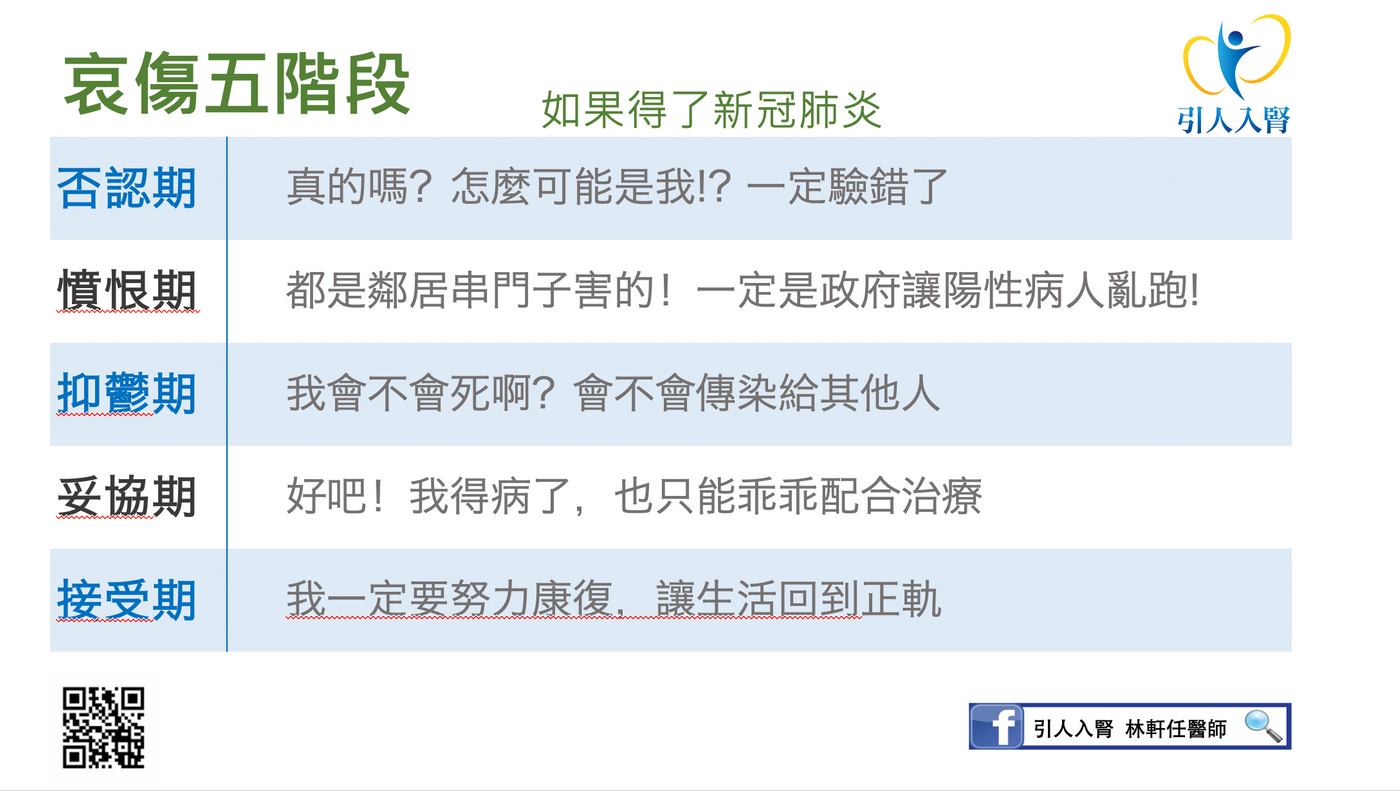
Apply the above mood classification to patients with new coronary pneumonia or major diseases:
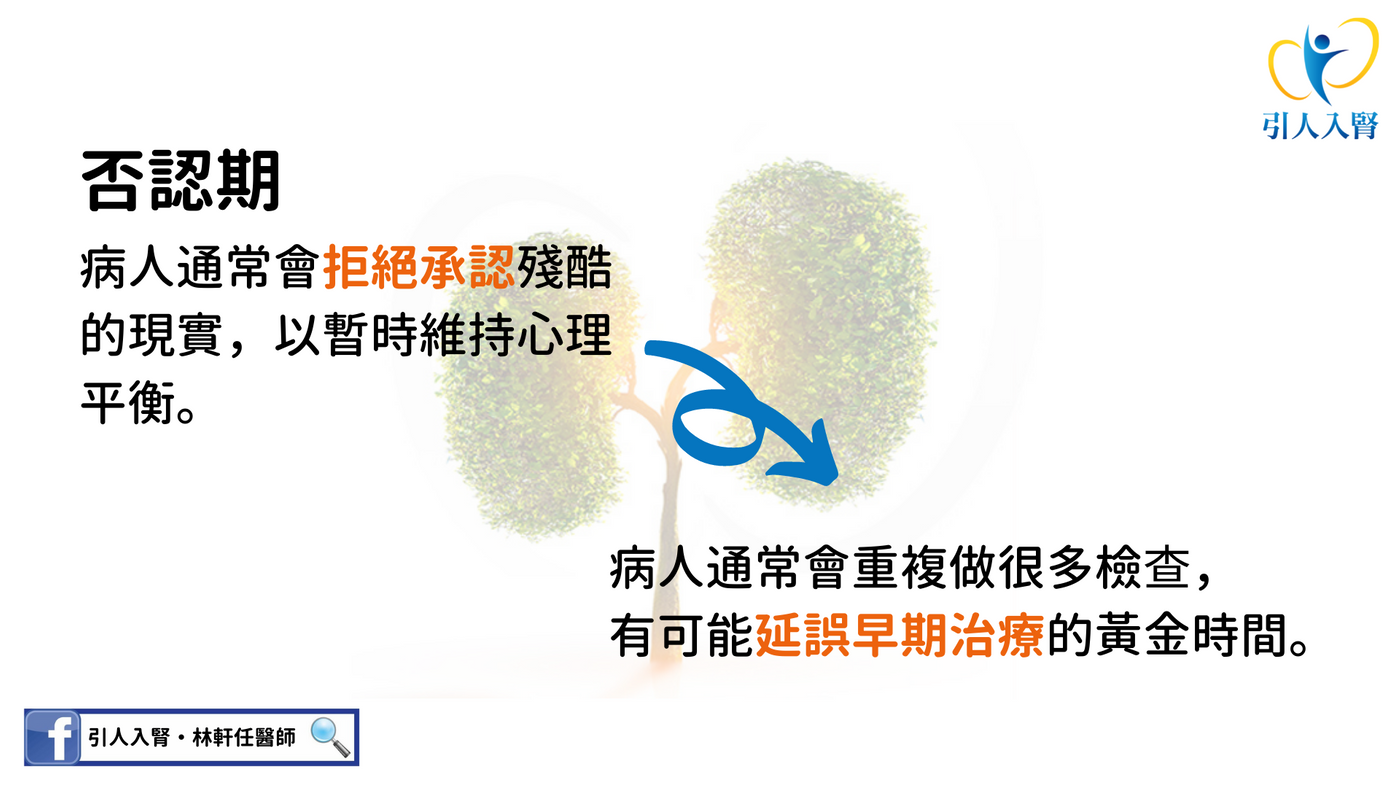
A period of denial
possible situation
1. When I learned that the test was positive: "What? How could I get it? I don't go out often after the alert level 3, and I only go to the balcony to let the wind out!"
2. When symptoms appear, it is suspected that they may be infected, and they go to the clinic for repeated examinations, which may delay the prime time for early treatment.
3. Many patients are not completely denying the diagnosis of the infection, but are suppressing their strong emotional response to the disease and avoiding the emotional support of their relatives and friends.
solution
Bystanders can provide the right knowledge, provide appropriate care and support depending on the patient's condition, and let the patient know that they have complete backup.
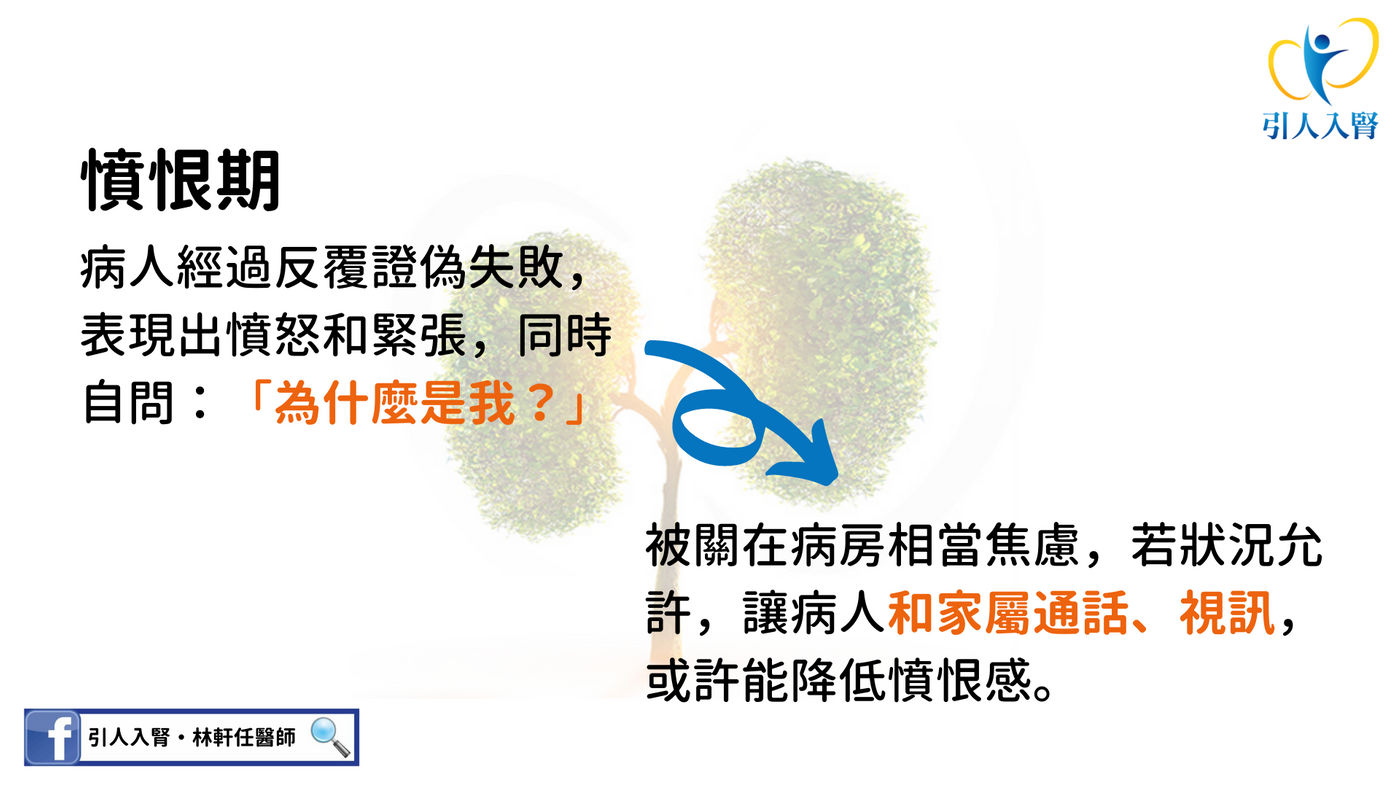
The period of resentment
possible situation
1. After learning that the test was positive twice, I was very angry. I started blaming the neighbors for visiting, the child for not helping him make an appointment for vaccinations in time, the government for not managing the time of his confirmed cases, and even the ancestors for not blessing him.
2. Just like the previous patient in Shuanghe Hospital, he was unwilling to cooperate with the treatment after diagnosis, and even slashed the nursing staff with a knife. At this time, he just passed the denial period, and as soon as he entered the resentment period, he directly hurt others. Although most people do not take such violent actions when they enter the resentment period, there is still the possibility of verbal violence that can hurt those who actively care
solution
Anger is a normal reaction. Those who have been diagnosed need to take a good look at their mood and allow anger, but they must not show behavior that hurts others.
At this time, what the confirmed person needs is not advice, but companionship. If family members are diagnosed, we can let them know that someone cares about them by talking to them, video chatting, and occasionally delivering their favorite food.
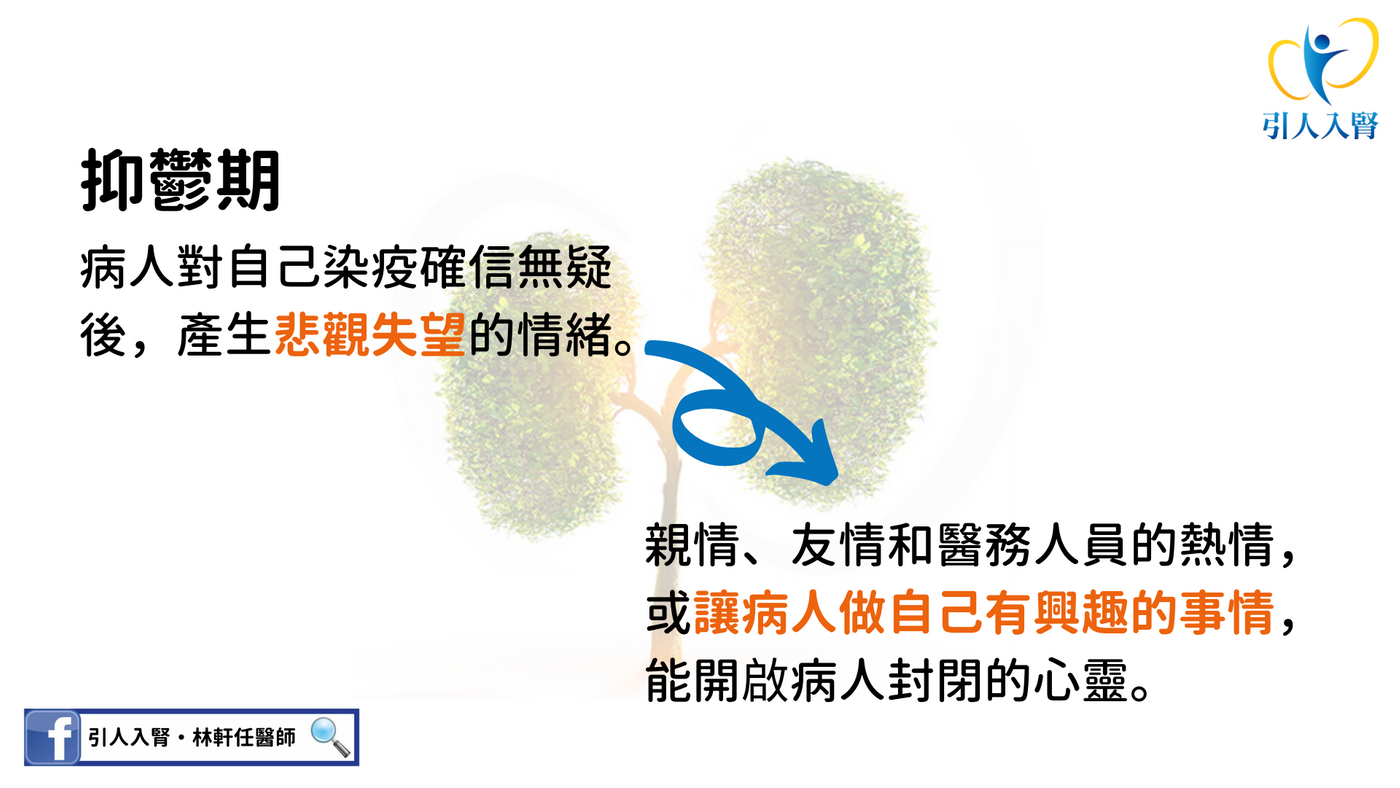
The period of depression
possible situation
1. When the anger subsides, pessimism and disappointment will gradually appear. On the one hand, one will nostalgic about life and think about various problems that cannot be let go. At the same time, the psychology will be very contradictory, showing disappointment, restlessness, loss of interest, sullenness, and taciturn. and other symptoms. For example: There are so many people eating at the same time in the party, and I have clearly taken the protective measures, why is it only me who won the bid?
2. The serious situation may be like a woman in her 30s in Fukuoka, Japan. Her family members developed symptoms such as fever and loss of appetite. After testing, she was diagnosed with new coronary pneumonia. She was also diagnosed a few days later. On the same day, colleagues were also diagnosed one after another. A woman was worried that she might infect her colleagues, and felt sorry for her, so she committed suicide.
solution
Unlike other infectious diseases, COVID-19 can easily lead to prejudice from others, and it is more likely to cause anxiety in patients, or a sense of guilt for causing trouble to those around them. At this time, others can offer some hope. For example, Rita, a Spanish female student who returned to Taiwan for treatment last year, shared her mental journey on her personal IG, and also filmed videos and interviewed by the media, in order to let herself and her patients gain greater benefits For her support, there were indeed private messages from patients to express her gratitude. It is very important for this stage to share with the public the cases of patients who have been successfully cured, which can shorten the situation and degree of depression.

4. Compromise Period
possible situation
1. When my mood calms down a little, I no longer feel depressed or angry, I can finally face my "patient role" as a new coronary pneumonia patient.
2. At this time, I would like to have a good understanding of the nature and treatment of new coronary pneumonia, as well as the experience of patients.
3. The compromise period means that the problem begins to manifest itself, and the problem is no longer projected to the mood or the outside world. It is easier to listen to the opinions of other people. If regular medical treatment is adopted, special attention will be paid to the precautions of diet and isolation. But at this time, we must also pay attention to two extremes: the type of medical treatment and the type of non-medical treatment. The former will "seek medical treatment in a hurry", looking for famous doctors and medicines, searching the Internet for the latest treatment results, willing to try any remedies, and it is easy to fall into overdose. The trap of medical treatment, or the prey of fraudsters; the latter will hold the mentality of terminal illness, think that there is no need to spend money, and there is no need to suffer the sin of endless inspections and treatments, and they should eat as much as they want and travel around.
solution
Because at present, patients with new coronary pneumonia will be isolated and treated immediately after being diagnosed, and there will be less extreme actions that may occur during the compromise period. Therefore, here we take dialysis patients as an example. Many patients whose disease progresses to the point of needing kidney dialysis, as soon as they hear that they are going to have kidney dialysis, start to seek medical treatment indiscriminately when their emotions enter a period of compromise, including the magic medicine in TV advertisements, the sacred relics recommended by neighbors, etc., all of them will buy and try , When the symptoms are terminally ill, sometimes they are sent to the hospital with pulmonary edema and even respiratory failure.
Therefore, if you are a family member of a critically ill patient, you must ensure that the patient receives correct medical information and walks the path of correct medical treatment, so as not to lose your life and infect your loved ones.
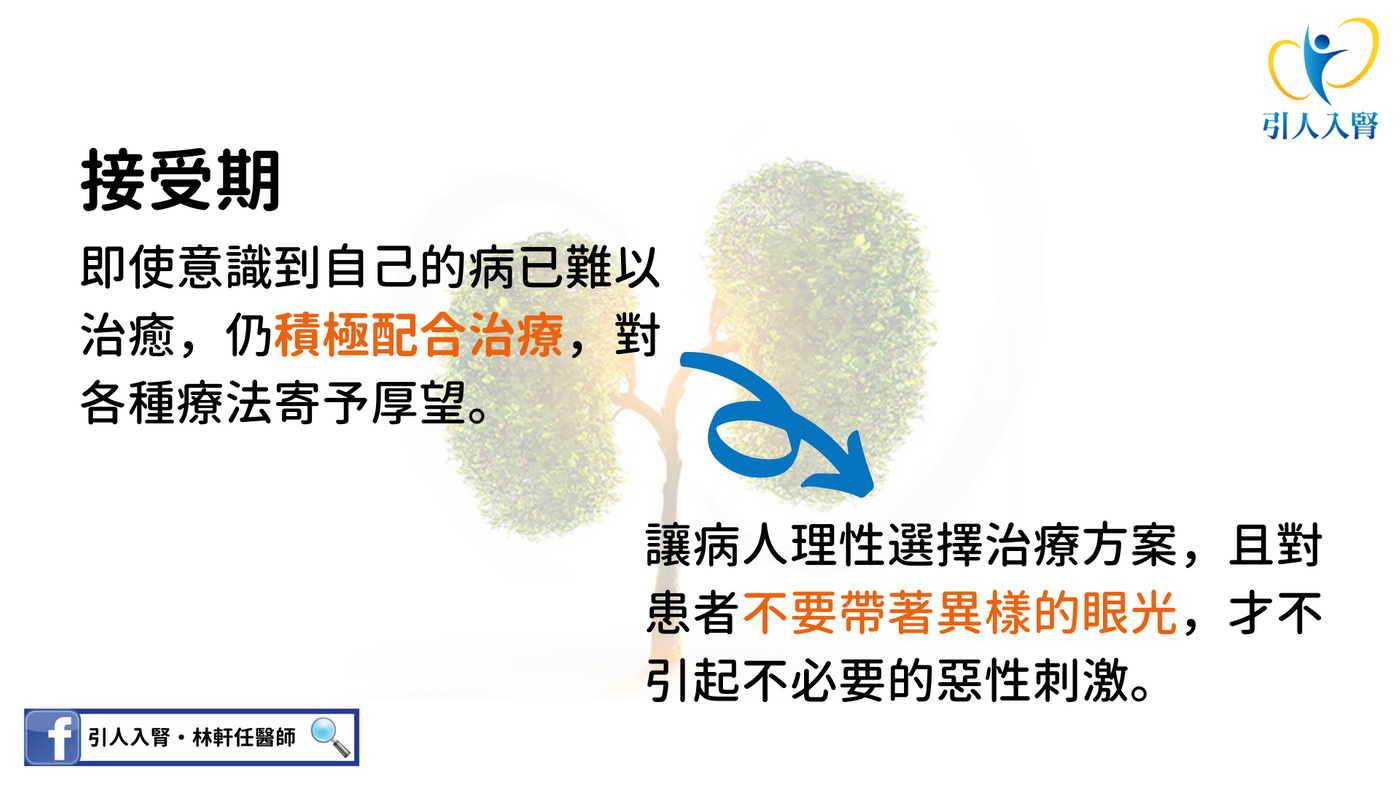
V. Acceptance Period
possible situation
It shows that they are willing to accept treatment, some actively cooperate with treatment, and have high expectations for various treatments. Even if they realize that their disease is incurable, they still hope to receive timely and effective treatment, and pin their hope of survival on treatment.
solution
Let the patient accept the reality, follow the advice of the doctor, relatives and friends, choose a reasonable treatment plan rationally and accept the treatment with a calm mind, rearrange his life, and do not treat the patient differently, so as not to bring the patient into trouble. Necessary malignant stimulus.
Finally, I would like to share with you a book I recently read, "Raising Children With Strong Hearts". The TRICK principle mentioned in it is applicable to the problems that may arise from all aspects of the new crown pneumonia epidemic.
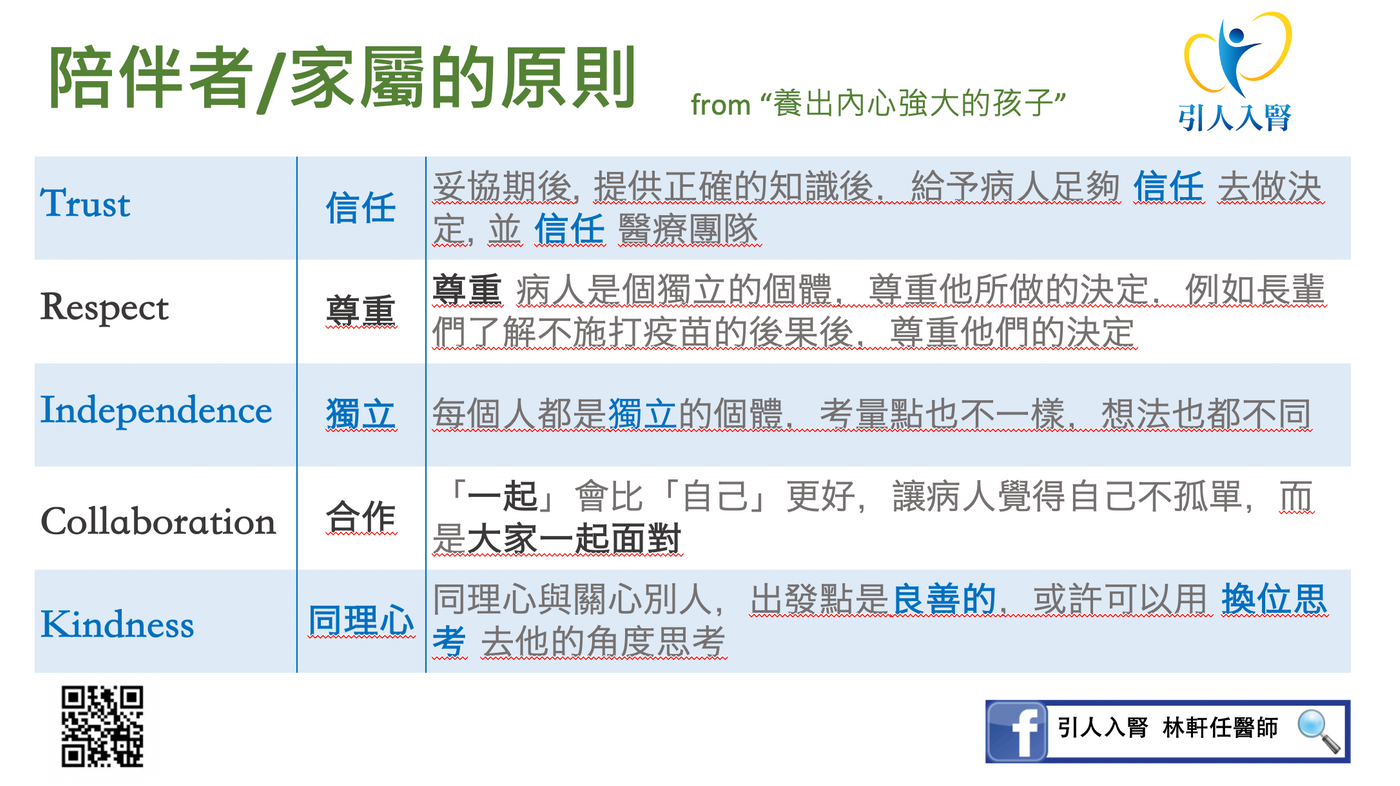
T stands for trust. After the compromise period, the patient can be provided with correct disease knowledge, and the other party can make his own decision, fully supporting the other party's choice.
R stands for Respect, I stands for Independence, respecting patients as independent individuals and their decisions. Taking vaccination as an example, many kidney dialysis patients are worried about the side effects of the vaccine and hesitate to get vaccinated. From the doctor's point of view, they will inform them of the advantages and disadvantages of vaccination, as well as the risks of not vaccinating.
C stands for Collaboration, "Together" is better than "Self", so that patients feel that they are not alone, but face it together.
K stands for kindness of empathy. The starting point of providing advice and companionship to patients must be good, and at the same time, it can be empathic, thinking for them from the perspective of patients, and making patients feel respected and accompanied.
New coronary pneumonia is not like an ordinary disease. During the treatment period, you can find patients to encourage each other and contact other people. During the isolation period, they may not even know who is in other rooms. Because the law also pays great attention to the privacy of patients, the confirmed patients are receiving treatment. The treatment process is relatively lonely.
Finally, I remind everyone that no one wants to get sick, but in the face of the sick body, you must be positive and optimistic, in order to have a chance to defeat the disease.
Like my work? Don't forget to support and clap, let me know that you are with me on the road of creation. Keep this enthusiasm together!

- Author
- More